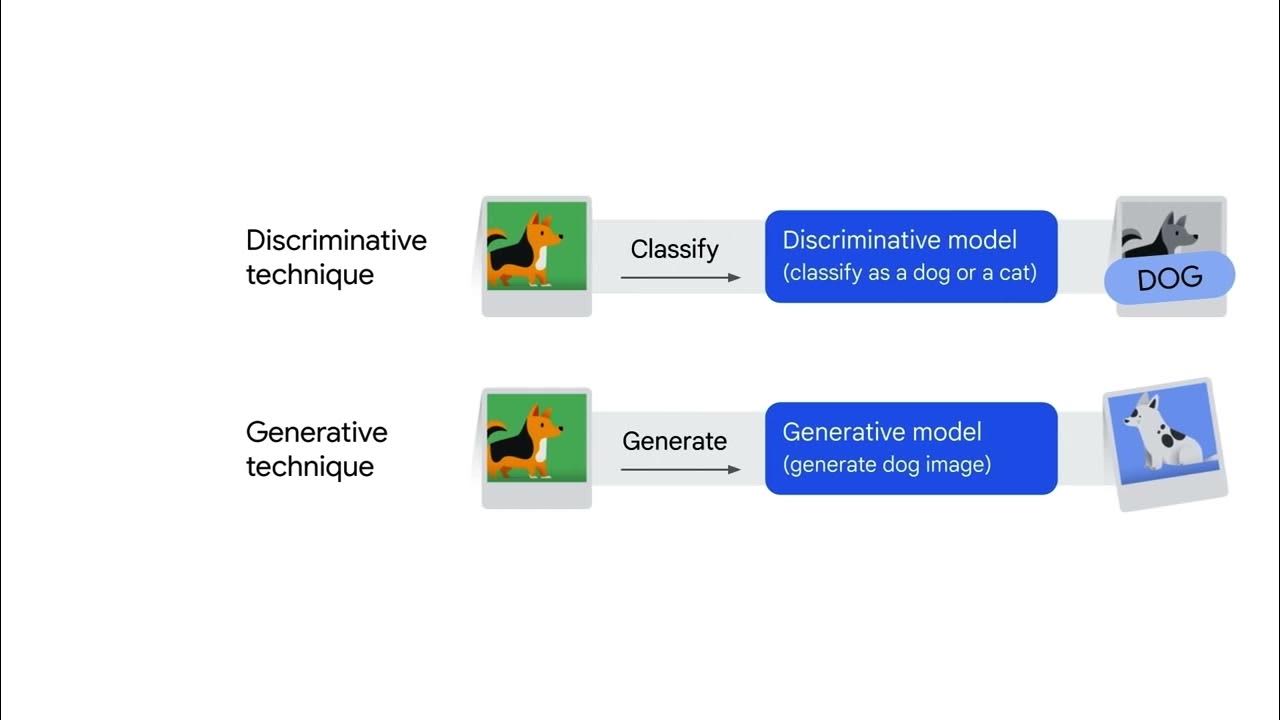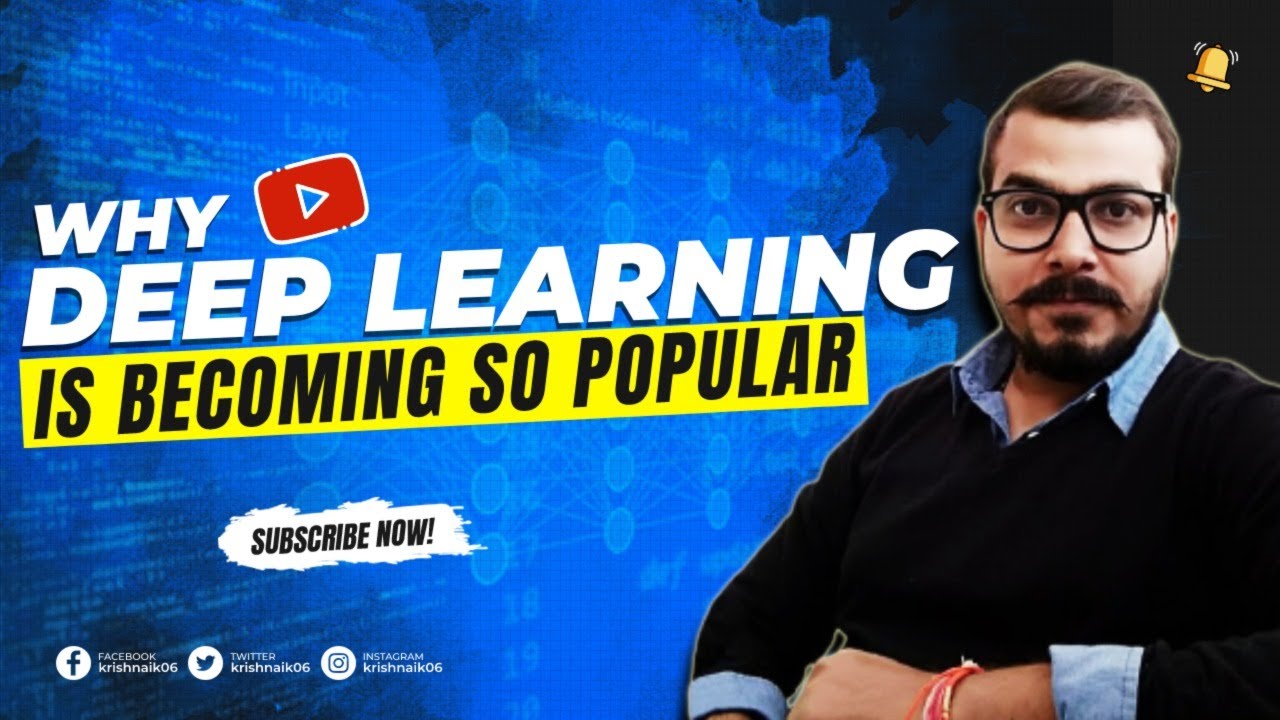1- Deep Learning (for Audio) with Python: Course Overview
Summary
TLDRWelcome to 'Deep Learning for Audio,' a course designed to demystify deep learning's capabilities and limitations. We'll delve into neural network theory, covering the math behind these algorithms, and explore coding with TensorFlow. The course focuses on audio and music, introducing various neural network types like CNNs and RNNs. Expect a mix of theory, coding tutorials, and real-world applications. Aimed at developers, especially those interested in audio, this course assumes some coding and math proficiency but is open to all looking to enhance their AI skills.
Takeaways
- 🧠 **Understanding Deep Learning**: The course aims to help you understand the capabilities and limits of deep learning.
- 📚 **Fundamental Theory**: You will learn the fundamental theory behind neural networks, including some essential math.
- 💻 **Practical Coding**: The course includes practical sessions where you'll code deep learning networks using industry-standard libraries like TensorFlow.
- 🎓 **Exploring Neural Networks**: You'll explore different types of neural networks such as RNNs, CNNs, and GANs.
- 🎵 **Audio and Music Focus**: Although the course focuses on audio and music, it's suitable for anyone interested in deep learning, regardless of their interest in audio.
- 🐍 **Python and TensorFlow**: The course uses Python and TensorFlow, which are industry standards for AI and machine learning.
- 🔧 **Hands-on Experience**: You'll gain hands-on experience with coding tutorials and real-world applications.
- 📈 **Neural Network Types**: The course covers various neural network types starting from MLPs to CNNs, RNNs, and GANs.
- 📊 **Mathematical Foundation**: Basic linear algebra and derivatives will be taught to understand how neural networks operate.
- 🔗 **Resources and Materials**: All course materials, including code and slides, will be available on a GitHub page.
- 👨💻 **Target Audience**: The course is designed for developers, data analysts, and practitioners with some experience who want to learn deep learning, especially related to audio and music.
Q & A
What are the learning goals of the 'Deep Learning for Audio' course?
-The learning goals include understanding the capabilities and limits of deep learning, learning the fundamental theory behind neural networks, coding deep learning networks using libraries like TensorFlow, and exploring different types of neural networks with a focus on audio and music.
Why is TensorFlow chosen as the primary deep learning library for this course?
-TensorFlow is chosen because it is an industry standard for artificial intelligence, used widely in startups, corporations, and academia. It offers a high-level interface called Keras that allows for creating complex networks with minimal code, and it is open source.
What are the different types of neural networks that will be covered in the course?
-The course will cover Multi-Layer Perceptrons (MLPs), Convolutional Neural Networks (CNNs), Recurrent Neural Networks (RNNs), and Generative Adversarial Networks (GANs).
What is the expected background for the course participants?
-The course is designed for developers who want to learn deep learning skills, especially those with an interest in audio and music. It is not for Python beginners but for those with intermediate coding skills and some understanding of basic linear algebra and digital signal processing.
How will the course content be structured?
-The content will be structured into three blocks: theory, coding tutorials, and real-world applications. The theory section will cover basics like linear algebra and derivatives, coding tutorials will involve both Python and TensorFlow, and real-world applications will test the knowledge acquired.
What kind of math will be covered in the course?
-The course will cover basic linear algebra and derivatives, which are essential for understanding how neural networks work.
Who is the course suitable for besides developers interested in audio and music?
-The course is also suitable for data analysts who want to learn more about machine learning and AI, and practitioners with experience in audio or digital signal processing who want to advance their skills.
How can participants access the code and slides from the course?
-The instructor will post all the lessons, including code and slides, on a GitHub page, which will be linked in the description of each video in the series.
What is the course's stance on the necessity of prior knowledge in audio digital signal processing?
-While having knowledge of audio digital signal processing is beneficial, it is not necessary as the course will cover all the necessary DSP concepts.
Is the course designed for absolute beginners in programming?
-No, the course is not designed for absolute beginners in programming. It assumes participants have intermediate coding skills, specifically in Python.
What is the main focus of the course in terms of content?
-The main focus is on deep learning, with an emphasis on audio and music applications. The course will not teach basic coding but will focus on AI concepts and their implementation using deep learning techniques.
Outlines

This section is available to paid users only. Please upgrade to access this part.
Upgrade NowMindmap

This section is available to paid users only. Please upgrade to access this part.
Upgrade NowKeywords

This section is available to paid users only. Please upgrade to access this part.
Upgrade NowHighlights

This section is available to paid users only. Please upgrade to access this part.
Upgrade NowTranscripts

This section is available to paid users only. Please upgrade to access this part.
Upgrade NowBrowse More Related Video

Lecture 1.1 — Why do we need machine learning [Neural Networks for Machine Learning]

Introduction to Generative AI

Google’s AI Course for Beginners (in 10 minutes)!

Why Deep Learning Is Becoming So Popular?🔥🔥🔥🔥🔥🔥

Kalau bukan Neural Network? | Pengenalan Traditional Machine Learning

AI vs ML vs DL vs Data Science - Difference Explained | Simplilearn
5.0 / 5 (0 votes)